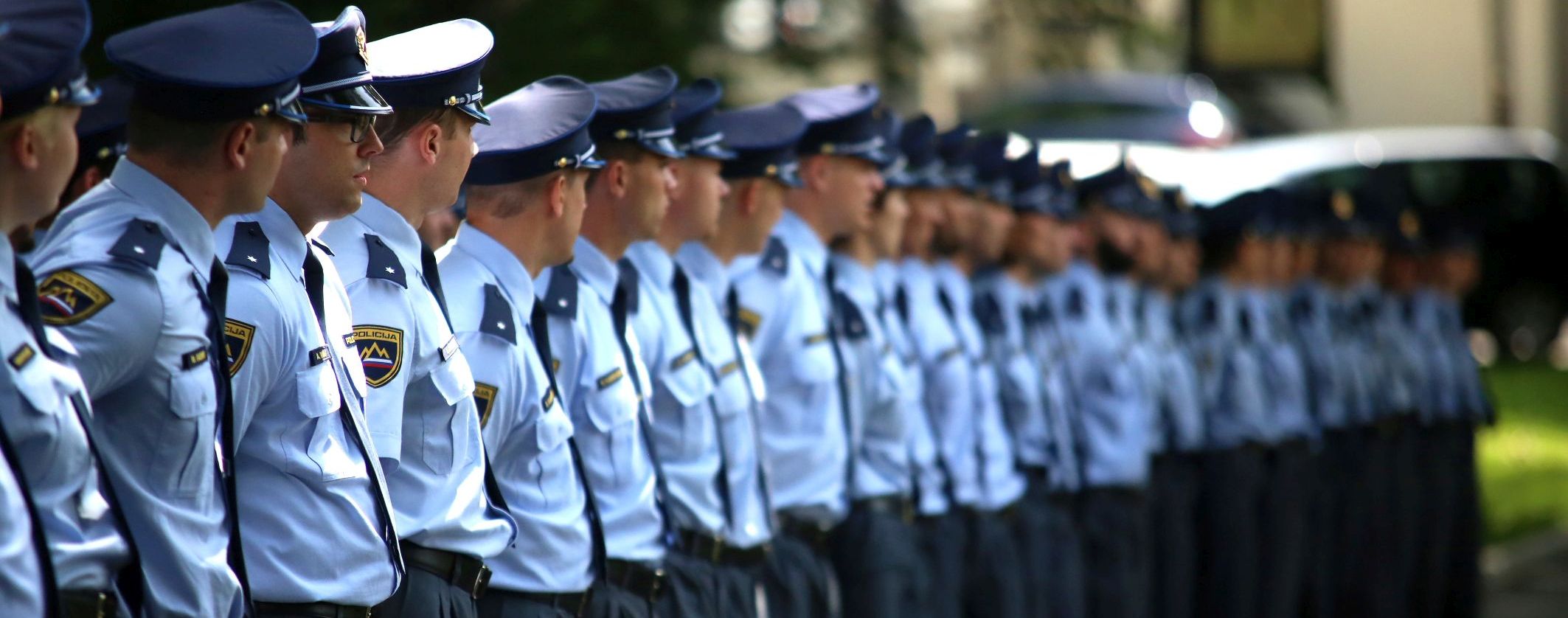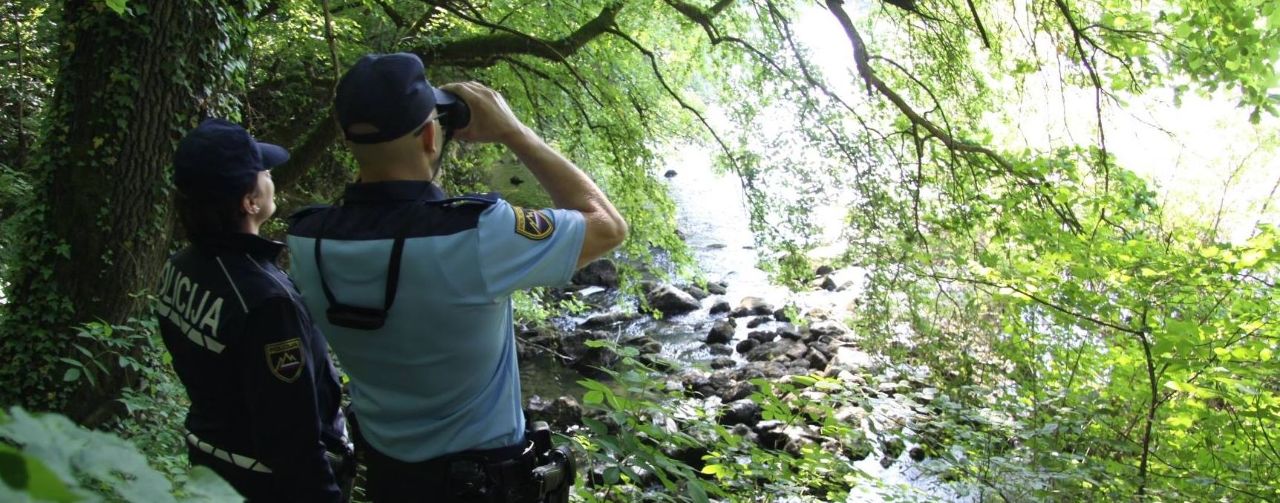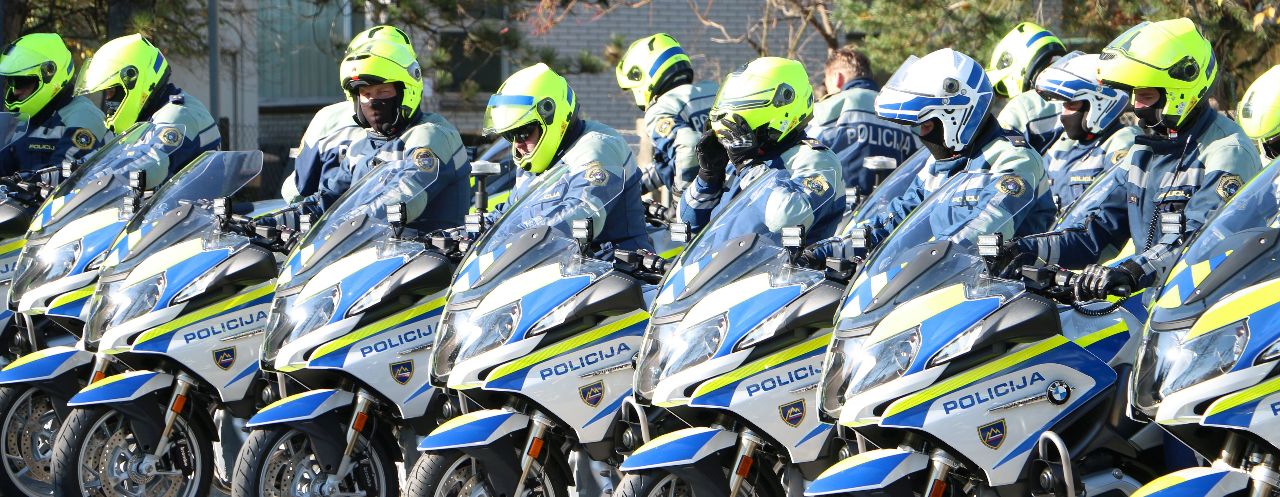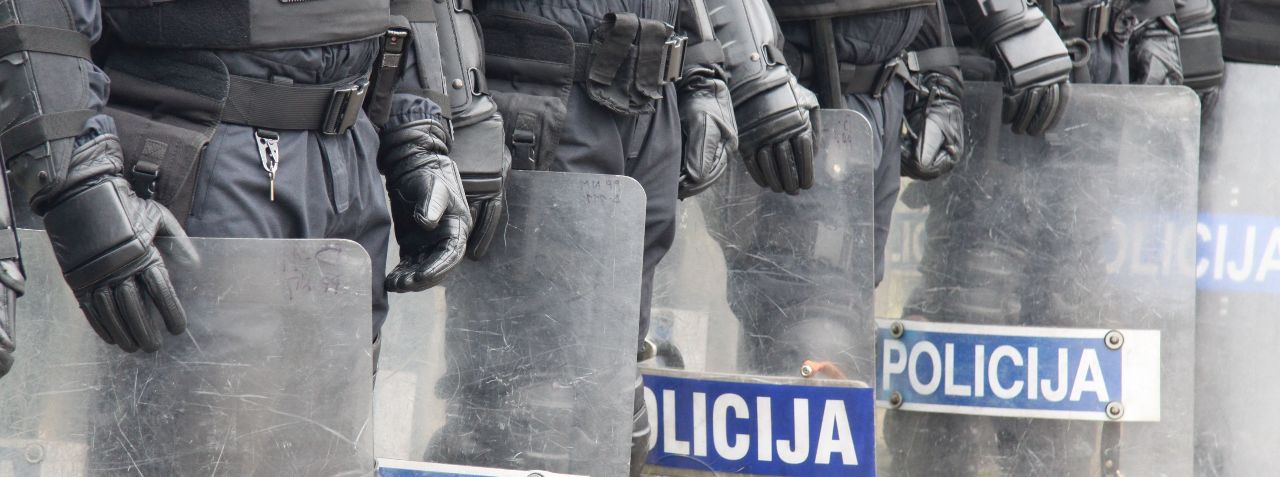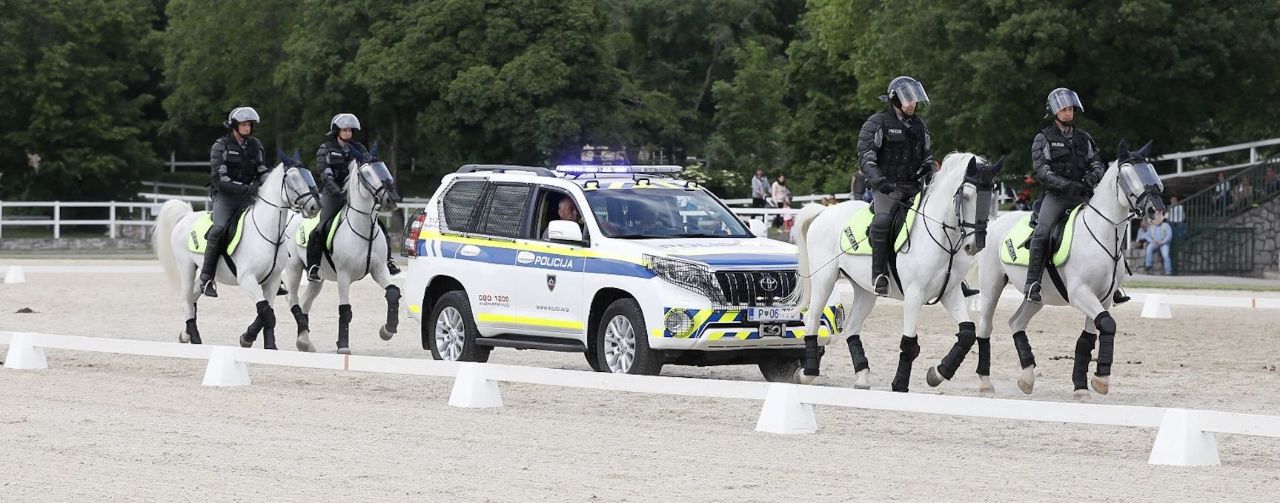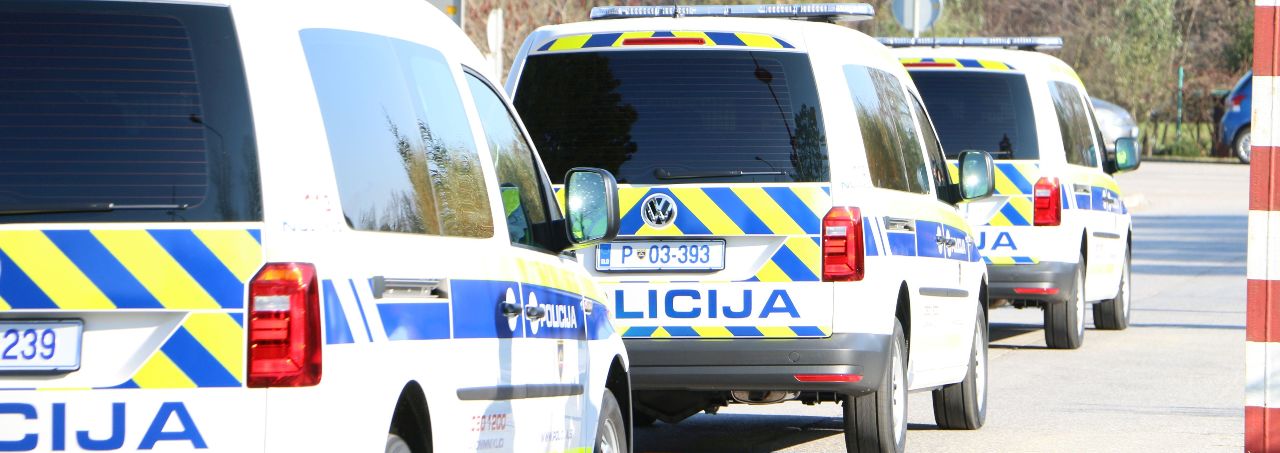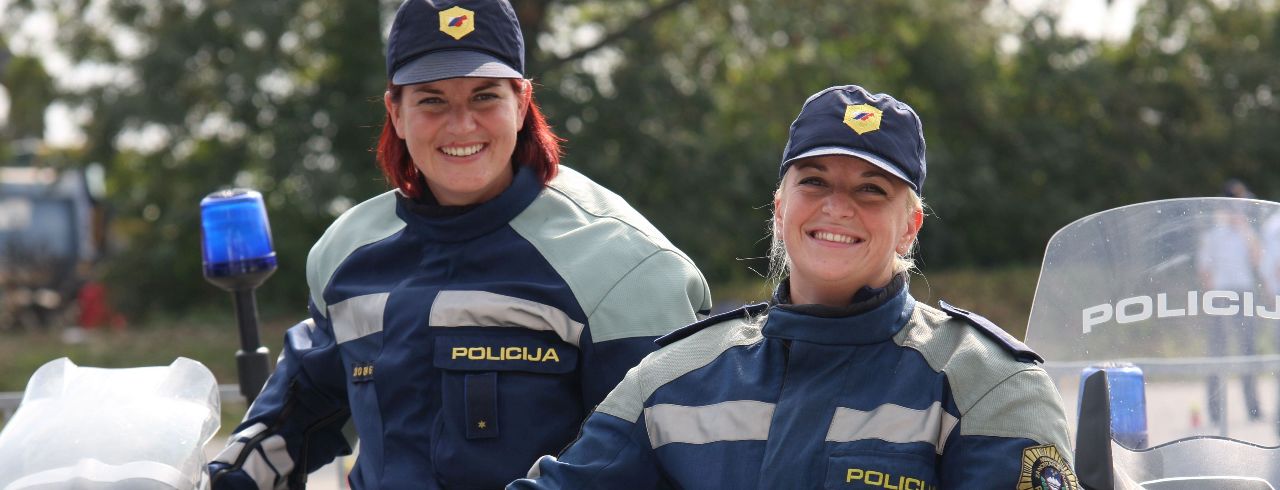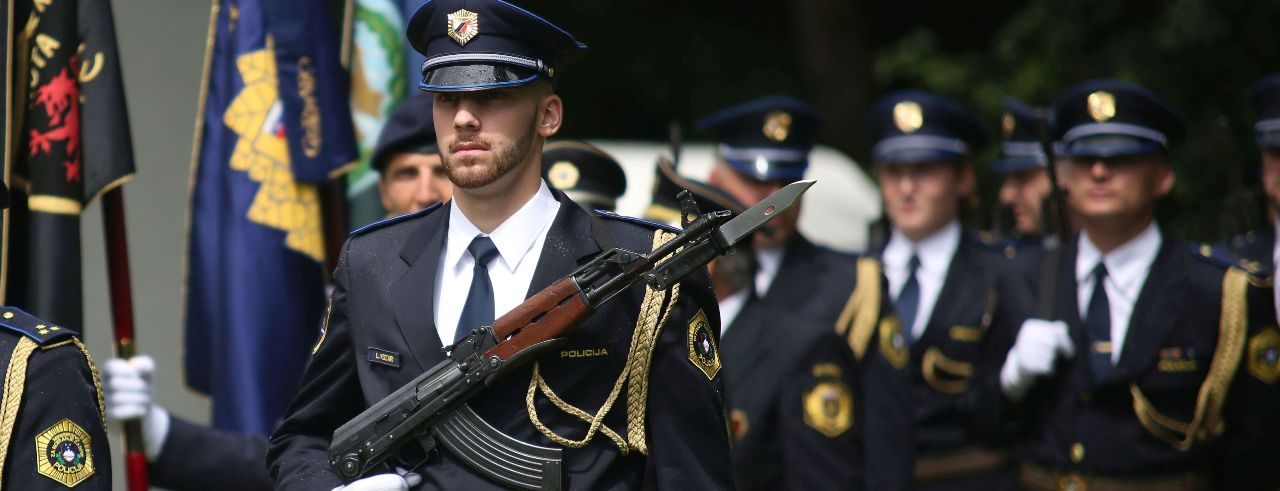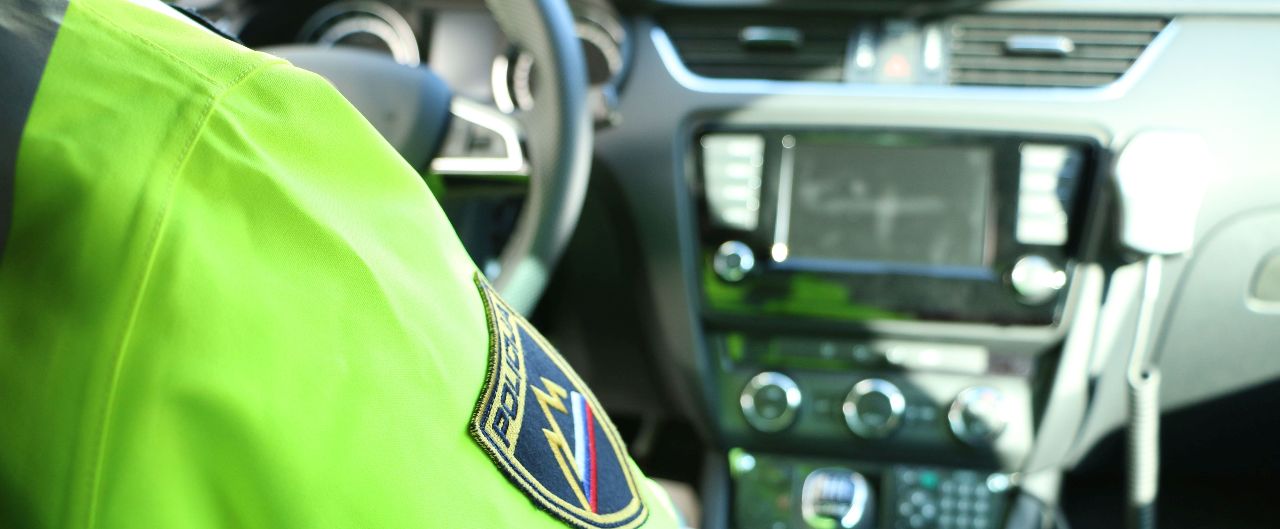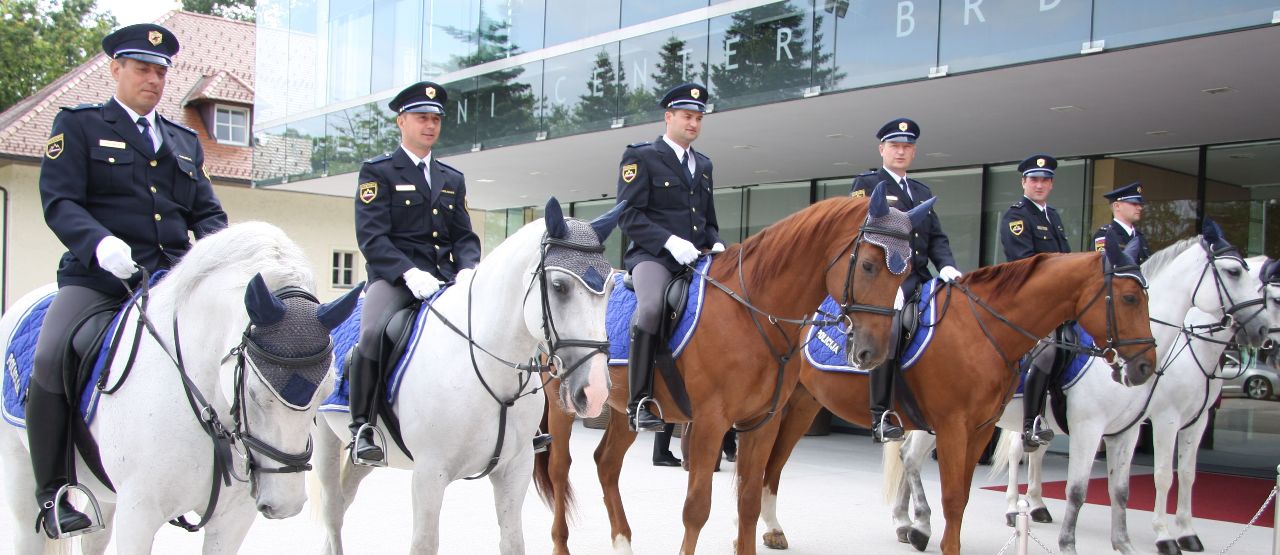News

EU Most Wanted website revamped with new fugitives added

Representatives of Slovenia attend the 93th INTERPOL General Assembly in Morocco

Slovenian criminal police take part in the international operation against child sexual exploitation Mozaik 2025
Solemn oath of the ninth generation of the Police College
Maribor Police Directorate celebrates an important milestone – 40th anniversary of the continuous operation of the mounted police
Foundation stone laid for the new police station in Ajdovščina
NFL Quality and Development Section
The NFL Quality and Development Section is responsible for implementing, maintaining and improving the quality management system.
Accredited methods of the National Forensic Laboratory
Accredited methods ensure the technical validity of the result and the impartiality and competence of the staff. The exact scope of the accredited activity of the laboratory can be seen in the appendix to the accreditation document.
Forensic Science in Slovenia – 70 Years of Memories
In 1950, the Forensic Science Laboratory of the State Secretariat of Home Affairs was established in Ljubljana. The forensic science laboratory commenced operations at 7 Beethoven Street in Ljubljana, in a corner building between Cankar and Beethoven Streets. At a later date, the laboratory was moved to the premises of the Ministry of the Interior at 2 Štefan Street.
New pychoactive substances and evidential value of drugs profiling analyses, 28th and 29th September 2016
Seminar "New psychoactive substances and evidential value of drugs profiling analyses" was held in Ljubljana.(28th and 29th September, Ljubljana, Slovenia, for SI law enforcement; activity closed)
Forensic Drugs Analyses - European project RESPONSE
Collect, Analyse, Organize, Evaluate, Share - A Response to Challenges in Forensic Drugs Analyses (Short Project Title - Response)
Chemical Examination Section
The Chemical Examination Section performs qualitative, quantitative and comparative examinations of different material traces. It proves illicit drugs, accompanying substances and active and inactive additives in various illicit compounds and performs monitoring of chemical characteristics of the most common illicit drugs and reports to the EMCDDA and UNDCP. It identifies precursors used for the manufacture of illicit drugs and, in the framework of the European "Early warning system on new psychotropic substances", identifies and informs on new manifestations of synthetic and potentially dangerous psychotropic substances. In connection with investigations of criminal offences of damaging another's object, break-in, traffic accidents, fraud and similar, it performs examinations of different coatings (paints, varnishes, paint sprays), adhesive tapes, adhesives and plastic materials. It also carries out fire investigations and identifies micro traces of flammable liquids in different matrixes from fire scenes. It investigates explosions and proves micro residues of explosives in various materials from explosions scenes. To a limited extent (and upon prior agreement with clients) it performs various other examinations (proving tear gas, some examinations in connection with environmental contamination, examinations of dyes for the protection of banknotes, identification of corrosive and other dangerous substances or poisons). To examine materials the following are used: macroscopic/ and/or microscopic examination, various physical-chemical tests, preliminary colour and precipitating reactions and chromatographic and/or spectrometric instrumental methods in connection with different computer databases. The list of examinations can be found in Appendix
Physical Examination Section
The Physical Examination Section covers the greatest variety of specialised areas in forensic science, from textile fibre examinations, examinations of weapons, traces of tools and footwear, glass, soil, and traces in connection with traffic accidents, to electrical devices, explosive devices, traces in connection with fires, the examination of traces from the hands of a shooter, and determining firing distance. The section also carries out ballistic testing of bulletproof protection material and products and testing of firearms and ammunition.
Document Examination Section NAC/CNAC
The Document Examination Section NAC/CNAC was long known as the Graphology Examination Section, although its experts argued for years that their domain was not preparing graphology expert opinions but performing forensic investigations of manuscripts and signatures. From 1996 to 2000 it operated as the Document Examination Desk due to its small size; in 2000, it was renamed the Manuscript and Document Examination Section, and since 2006 it has been known as the Document Examination Section NAC/CNAC (National Analytical Centre/CoinNational Analytical Centre).
Fingerprints and Facial Comparison Section
Dactyloscopy was the first method for identifying perpetrators based on scientific grounds, with its beginnings dating back to the late 19th and early 20th centuries. Initially, the Fingerprints and Facial Comparison Section managed the "central record of general and monodactyloscopy, records of palm prints from serious offenders, and a record of fingerprints found at crime scenes." Today, the records are kept within the AFIS, while the section also acts as a repository for the legally defined record of persons from whom dactyloscopic data were acquired. In addition to identifying the perpetrators and victims of criminal offences, the section is also the contact point for the international exchange of dactyloscopic data (traces and fingerprints) with 20 signatory states in accordance with the requirements of the Prüm Treaty.
Biological Examination Section
The Biological Examination Section was the last section to be established within the forensic laboratory. Even though the chemical laboratory was in charge of the few biological examinations performed during the initial period of more than 20 years, and even though the biological laboratory's beginnings were modest, with only one employee in 1971, 50 years later, this section has the highest workload and its DNA tests help solve the most serious criminal offences in the country.
National Forensic Laboratory
Vodovodna 95, 1000 Ljubljana + 386 1 428 449, + 386 1 428 5411, + 386 1 428 4093 + 386 1 428 4986 nfl@policija.si Director of NFL: mag. Boštjan Glavič Presentation The National Forensic Laboratory (NFL) is an independent organisational unit of the General Police Directorate. It was established to carry out examinations of material traces caused by criminal and minor offences and interpret examination results for the police and judicial authorities. As an exception, the NFL performs examinations of material traces originating from civil-law cases. In its examinations, the NFL uses over 100 different methods in the field of biological, chemical, physical and dactyloscopic examinations and examinations of documents, handwriting, money, photographs and videos. The NFL performs forensic examinations in about 10,000 cases every year. At the moment it is the only laboratory in Slovenia that performs forensic examinations in accordance with accredited procedures. The National Forensic Laboratory has 70 classified posts, of which there are 51 experts and 14 technicians. All experts, of whom 22 are court qualified, have at least professional degree, most of them university degrees, four have PhDs and two are MSc. The NFL also prepares specialist instructions on the taking, securing, storing and transporting of samples (materials) for examination and trains crime scene technicians from all police directorates in proper handling of samples (materials). In most demanding cases the NFL takes part in crime scene investigations and house searches. It conducts procedures for establishing identity of persons and victims of mass accidents and disasters. The NFL also acts as administrator of the record of fingerprinted persons and of DNA examination record. Principles and values of the NFL are professionalism, objectivity, reliability, responsibility and cooperation. Quality of forensic examinations A high level of expertise of NFL employees is based on years of experience, cooperation and training at forensic laboratories abroad. The NFL is a successor of the Criminal Examination Laboratory, which was established in Ljubljana as early as 1950 at the Ministry of the Interior of the then People's Republic of Slovenia. Professional competence of the NFL is recognized internationally since it is one of the founding members of the European Network of Forensic Science Institutes (ENFSI) {fa-external-link}and the Slovenian representative in it. The role of ENFSI is to ensure the quality and broaden the expertise and good practices of forensic examinations in Europe. NFL experts regularly participate in thirteen of a total of 16 working groups of ENFSI. The NFL guarantees reliability of its examinations by means of: the quality assurance system according to ISO/IEC 17025 standard for testing and calibration laboratories, standardised procedures, qualified staff, the use of modern and adequately maintained analytical equipment, internal controls of the quality of work, independent external assessment, and regular participation in inter-laboratory comparisons (qualification tests). Public acknowledgement that the NFL as a testing laboratory meets the SIST EN ISO/IEC 17025 standard requirements for forensic examinations is the granting of the accreditation by the Slovenian Accreditation. Organisation The NFL consists of six sections, which are led by heads of sections, who are independent in their work. Physical Examination Section Chemical Examination Section Biological Examination Section Fingerprints and Facial Comparison Section Documents Examination Section NFL Quality and Development Section History Forensic Science in Slovenia - 70 Years of Memories 70 Years of Forensics in Slovenia (2020) {fa-file-pdf-o} Projects Forensic Drugs Analyses - RESPONSE


